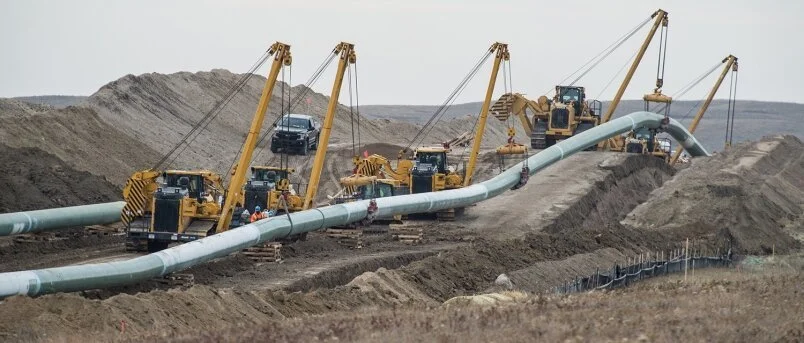When a vice president from Enbridge, the sixth richest company in Canada, decides to grace the opinion pages of Hamilton’s local paper — not the whole TorStar chain, specifically just The Hamilton Spectator — you know there’s something big going on here.
Higher heating bills under fire
The Ford government’s plan to jack up home heating bills goes before a legislative committee next week as momentum builds against Bill 165. Hamilton city council’s resolution has been echoed by several other municipalities along with three Hamilton area MPPs and citizen groups both locally and provincially.
Ensuring bigger tax hikes?
Nearly half of this year’s property tax increase was imposed to compensate for provincially-forced discounts in development charges (DC). City council is now considering providing developers with additional DC discounts that would also have to be recouped through tax increases.
Status of stop sprawl
The successful stop sprawl movement in Hamilton has more work to do. The major threats to farms, wetlands, streams and natural areas in Hamilton now centre around the airport.
Parking reform
Changing or eliminating municipal requirements to provide parking is critical to creating more affordable housing, encouraging sustainable transportation, reducing storm runoff and reducing heat island effects, a US expert told a Toronto conference last month. “In many places in the United States cities are now eliminating their parking requirements,” Dr Dave King told a transportation gathering.
Goodbye one point five
The most prominent climate scientist in North America says the planet has kissed goodbye to the target of keeping global warming below 1.5C. James Hansen says the drastic temperature spurt over the last half year makes this clear.
Marsh reprieve
Hearings on the fate of the Garner Road marsh have been pushed off again as developers scramble to bolster their case for “relocating” the wetland to accommodate construction of five warehouses and parking for more than a thousand vehicles. Fifteen days of hearings before the Ontario Land Tribunal (OLT) that were supposed to have taken place two months ago are now scheduled to not start until late February 2025.
More investigation calls
Pressure is building for a re-examination of provincial legislation that has weakened Conservation Authorities and banned them from providing ecological advice to city governments. Last week the board of the Niagara Peninsula Conservation Authority (NPCA) unanimously asked the Auditor-General to investigate the changes imposed at the end of last year.
Garner Marsh fate postponed
The Ontario Land Tribunal (OLT) hearing respecting the Garner Road Marsh property scheduled to start on October 2 has apparently been postponed. It was to determine the fate of the wetland and farmland at 140 Garner Road East in Ancaster in a scheduled 15-day hearing.
Greenbelt only part of giveaway
Approving development of nearly 2000 acres of local Greenbelt lands last November was in addition to doing the same for over 5400 acres of rural land in Hamilton three weeks earlier. The owners and developers of those farms, forests and wetlands will also reap financial benefits similar to those who own properties removed from the Greenbelt.
Epidemic of not recalling
The Integrity Commissioner’s report on Greenbelt removals released last week includes over seventy instances where the person he was questioning did “not recall” significant information. Those not remembering included developers and their agents, politicians and political staff in the provincial government.
Conservation reversal
There have been dramatic changes in the Hamilton Conservation Authority board with clear echoes of the unsuccessful revolt that took place last year. Two of the revolt leaders now are installed as chair and vice-chair of the environmental oversight agency.
Oceans frying too
Last month was the hottest May ever for both North and South America. But in what Bill McKibben is calling “the scariest moment yet in the climate saga” we are witnessing a dramatic jump in ocean temperatures.
Council action on warehouse
Public pressure and receptive councillors have made a difference. City council has imposed significant additional conditions on the proposed Dickenson Road warehouse, including requiring the developer to donate to the public the provincially significant wetland, its 30 metre buffer zone, and a woodlot.
Garner Marsh future darkens
The procedural rules for the Ontario Land Tribunal (OLT) hearing on the Garner Road Marsh have now been set for the three-week hearing beginning on October 2. But the changes to provincial legislation in Bill 23 appear to undermine the potential outcome. And the ultimate fate of the Marsh looks bleaker in the wake of revelations on the other side of the continent where the marsh owners control a much larger environmentally damaging project.
Council challenges Bill 23
Councillors appear fully united in their anger at the provincial Progressive Conservative government’s Bill 23. An initial response decrying the financial impacts of the legislation was approved unanimously. It was accompanied by vows that council will also tackle the environmental, social and democratic implications.
Not allowed to speak
In a highly unusual move, the Association of Ontario Municipalities (AMO) have been refused permission to speak to the legislative committee charged with detailed examination of Bill 23.
Democracy dismissed
It’s hard to see any democracy left to Hamiltonians in the decision of the provincial Progressive Conservative government to force a massive urban boundary expansion on the city and its residents. Just over a year ago, city council voted 13-3 to reject any boundary expansion, and specifically to turn down a proposed much smaller one than what the Ford government has now imposed.




















